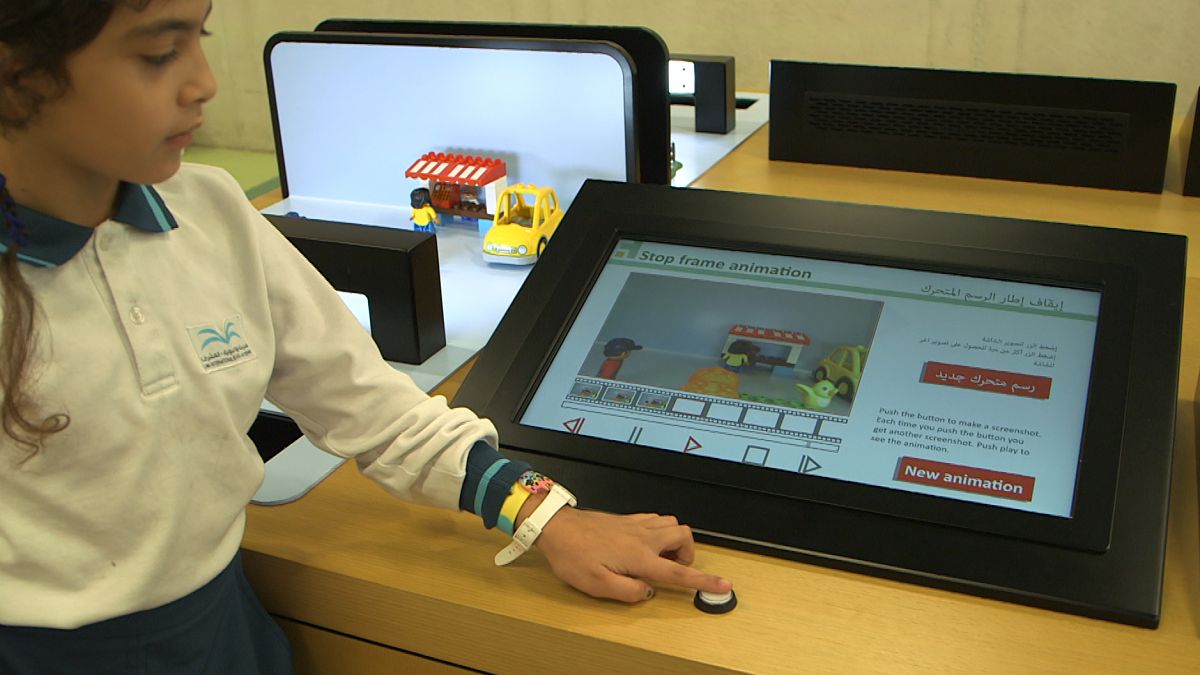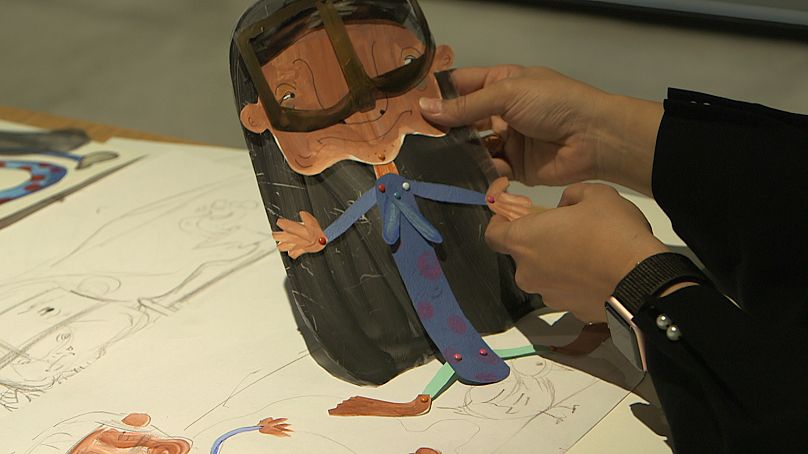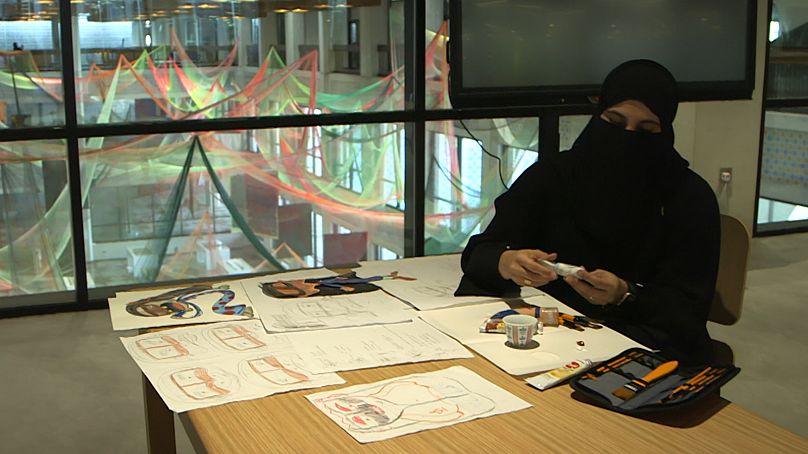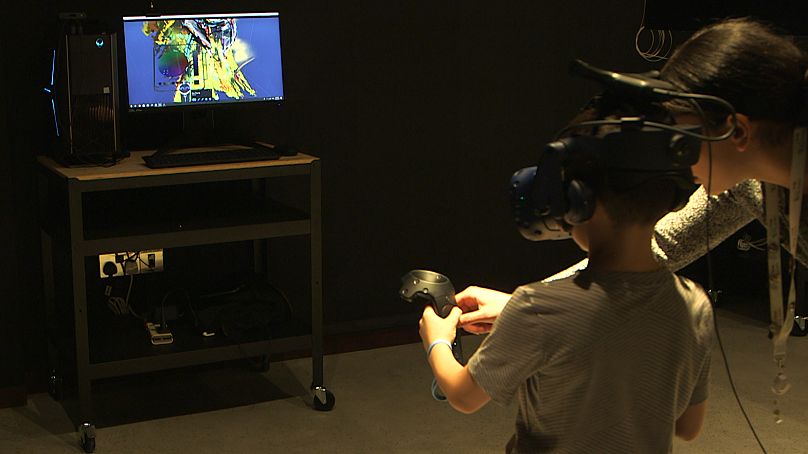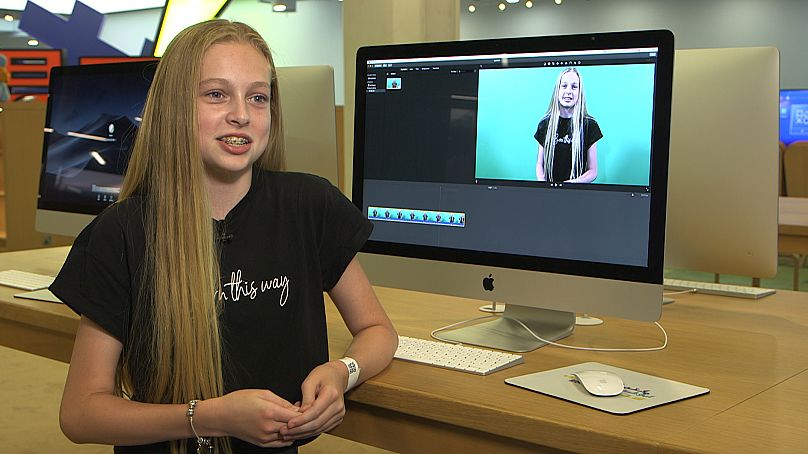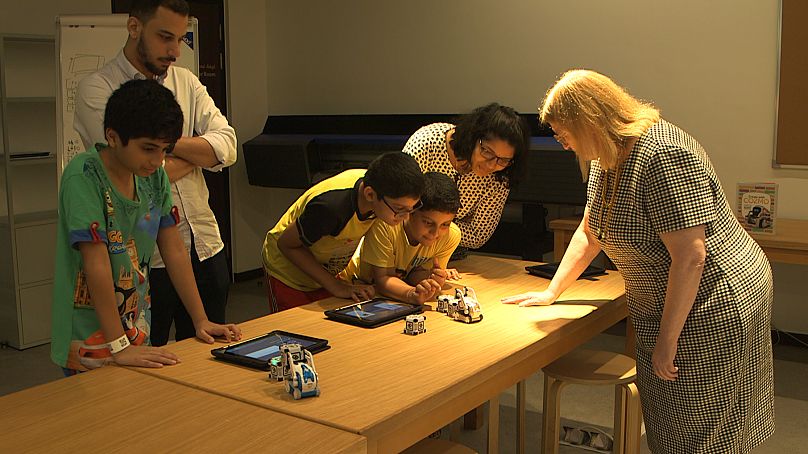Conjuring up ideas to engage children with books is what Emirati author and illustrator Maitha Al Khayat has been doing for more than ten years.
Conjuring up ideas to engage children with books is what Emirati author and illustrator Maitha Al Khayat has been doing for more than ten years.
The mother-of-five is the brains behind animated characters like Umi Mouza, a grouchy woman who lives in the desert, eats beetles and meddles in her neighbours’ affairs.
When she started out, Al Khayat says there were only a handful of Arabic children’s books authors in the UAE, and they were mainly writing school books.
Non-academic books for youngsters were mainly translated from international texts into Arabic, with much lost in translation according to Al Khayat.
What children want
The prolific writer, and artist of more than 160 books, says that children desire reading material which provides escapism and not pure learning.
“They have antennas, they would know that the sole purpose of the book was to teach them, instead of entertaining them,” she says. “Because if they found out, they would definitely throw the book away.”
One of Al Khayat’s books which has particularly resonated with children is Mom’s Amazing Socks, in which she teaches young readers the days of the week and about modest dressing. The story’s protagonist is a mother who wears quirky socks for different occasions.
Al Khayat also hosts reading workshops for children in the UAE, which she says is critical to encouraging better reading habits for the future.
Redefining literacy
In 2008, the UAE had a literacy rate of 96.1 % amongst 15 to 24-year-olds, according the country’s Federal Competitiveness and Statistics Authority.
In the same year, Arab states had some of the lowest youth literacy rates globally according to the UNESCO Institute for Statistics.
Some educators in the region believe that high literacy levels alone won’t prepare youngsters for what lies ahead. Indeed, some learning institutions in the UAE are looking to redefine what it means to be literate in the 21st century.
One example is the Abu Dhabi Children’s Library, which opened in September and is filled with 35,000 books spanning three floors.
Beyond books
Far from a traditional library packed solely with tomes of wisdom and encyclopedias, the education centre also comprises eleven interactive learning spaces. These were created with the input of children, many of whom expressed an interest in areas from robotics to virtual reality interfacing.
These facilities are intended to equip little ones with the tools to navigate the real world when they get older.
Ninth grade student Scarlett Roberts, an aspiring lawyer, used video recording and editing software at the library to make her case in support of female rugby players.
“I thought the library was the kind of place just to borrow a book, but now I know you’ve got all this technology and stuff. So, I’ll probably come more often,” says the British School Al Khubairat pupil based in Abu Dhabi.
According to a report by PricewaterhouseCoopers , 60% of CEOs surveyed said that educational institutions in the MENA region were not equipping students with workplace skills.
The study also pointed to students in the GCC failing to meet standardized testing in some areas including literacy and mathematics.
Encoding good learning habits
Library manager Michelle Hackwel, who runs the more than 5,000 square meter centre of knowledge in Abu Dhabi, is looking to improve these statistics.
She teaches a variety of coding and programming workshops in the capital, which she says should be more commonplace in libraries to help upskill youngsters.
Hackwel adds that in today’s society, children also often face an overwhelming amount of messages online and through social media, which they struggle to process.
“How do you make informed decisions? That’s a form of literacy. There’s visual literacy, decoding images, finding symbolism and meaning,” says Hackwel. “We try to give the children ways to think, ways to filter information.”
While tomorrow’s requirements for workplace preparedness remain everchanging, Hackwel says she’s keener to harness, and fully maximise, children’s love of learning - whether through texts or technology.
SEEN ON SOCIAL MEDIA: LIBRARY TIME
UAE resident Elena from Russia says her children love the music classes in Abu Dhabi Children’s Library.
And Sara from Lebanon says the Children’s Library in Abu Dhabi has the ‘Wow!' factor for her little ones as they learn to read.
